Text
Conclusion - Reference
Santrock, J. W. (2015). Lifespan development (15th ed.). Boston: McGraw-Hill.
This assignment has really pushed me to think critically about my own life. Where I was, where I am, and where I am going. I appreciate this assignment because it has forced me to see aspects of my life that I can improve on and ultimately have a better quality of life. I am glad we get the option to choose certain questions that pertain to us individually because we are all different.
References:
0 notes
Text
Absolute Zero
Chp. 20
Reflect: How do you think you will psychologically handle facing your own death?
I had a brush with death during my car accident and it has given me a lot of perspective on life. In different posts I have mentioned that in the moment of facing my own death I accepted my fate because I knew what love was, what it felt like to be loved and what it felt like to love deeply. Everything else good in my life is just a bonus. If I had more time contemplating my own death, then I would most likely go through the five stages of grief which are, “...denial, isolation, anger, bargaining, depression, and acceptance.” (Santrock. 2015) I would like to have my family surrounding me for support and extra last love. Because in my car accident it was a short moment of time I had to think quickly but if I were to face my death and think about it for quite some time I would have some trouble with it because my head would think of all the things I could have done. In my car accident I only focused on the love I shared with with people I loved.
References:
Santrock, J. W. (2015). Lifespan development (15th ed.). Boston: McGraw-Hill.
_______________________________________________________________________
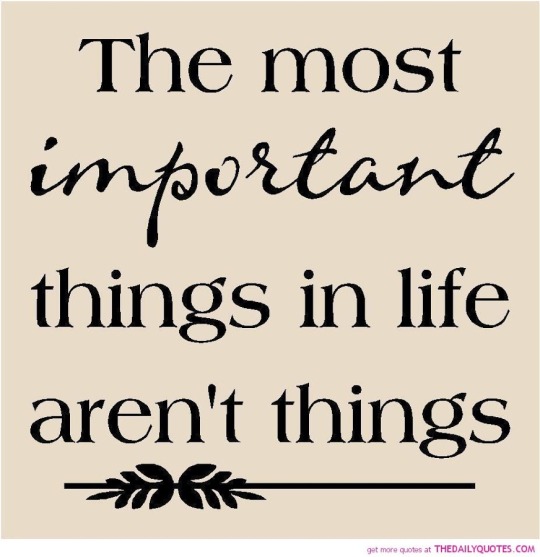
0 notes
Text
Allomer
Chp. 19
Reflect: Which of the four theories best describes the lives of older adults you know? Explain
The selective optimization with compensation theory closely resembles the life of my grandfather. My grandfather is a hardworking man who has decided that he was going to work for god for as long as he can. While there is nothing wrong with that, he has a harder time driving and doing tasks with ease because he is older and as he says, “Everything is going.”. Within the theory, selection is a concept that older people have a “...loss of function…” and “...a reduction in performance in most life domains...keep working on what [they] have planned until [they] are successful.” (Santrock, 2015) My other dad is a bit older and he bests fits the activity theory. The Activity theory fits people that are, “...more active and involved...and more likely to be satisfied with their lives.” (Santrock, 2015) He is very active in our lives and is more physically active than me. He is very young at heart and his health reflects that.
_______________________________________________________________________
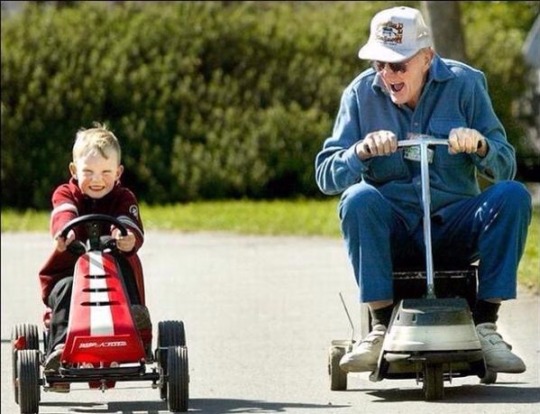
0 notes
Text
Corticotropin-releasing hormone (CRH)
Chp. 18
Reflect: Have any older adults in you family background experienced mental health problems as adults? If so, what were these mental health problems? If they have experienced mental health problems, what were the likely causes of the problems?
The most common mental health problem in my family background is Alzheimer’s Disease. My family believes that the disease was genetically inherited. Alzheimer, “...disease involves [in] a deficiency in the important role in memory…..age and genes also are likely play an important role.” (Santrock, 2015) My great grandmother who had Alzheimer's needed quite a lot of support from family members and caregivers for everyday little things. As months went on, she lost memory of who we were. It was heartbreaking. She died earlier than she would have on her trajectory. My grandmother and mother are worried that the disease was going to pass on to them because it may be genetic.
_______________________________________________________________________
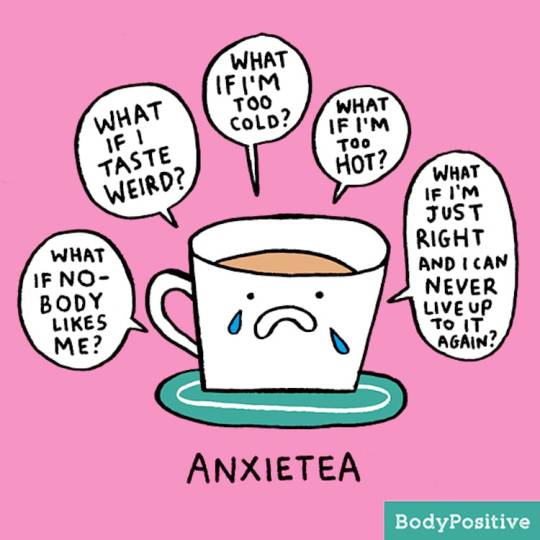
0 notes
Text
Serotonin or Depression
Chp. 17
Reflect: To what age do you think you will live? Why? To what age would you like to live?
Realistically, I think I will live around my 80’s. Optimistically I want to live around my 90’s. In the realistic perspective, I think that I would live in my 80’s and not my optimistic age because I was stressed for most of my life with my childhood trauma experiences and my career choices. It is said that, “...prolonged, elevated levels of stress - related hormones are associated with increased risks for many diseases, including cardiovascular disease, cancer, diabetes, and hypertension.” (Santrock, 2015) My family has a history of diabetes and cancer and I am at risk for these two diseases. To lessen my risk of diabetes, I have eaten healthy food and have attempted at exercise. My family has really stressed the fact that exercise is a vital part of keeping a healthy weight and shape. As a student, it can be hard to dedicate some time to a set schedule for exercise but I am trying.
_______________________________________________________________________

0 notes
Text
End Points - Indicators of change
Chp. 16
Reflect: How much stability and change have characterized your life so far? How much stability and change do you predict will characterize your future development as an adult? Explain
My mother provided shelter, food, and love. I felt secure and stable when I was younger. Now that I am in college and I am responsible for myself and everything that I do, my stability status has changed a bit. I have no place that I can call my own because I live with my family because it is financially and emotionally the best in my situation. It is known that, “...people show more stability in their personality when they reach midlife than they did when they were younger adults.” (Santrock, 2015) Because I am living at home with my parents I have more of a stability status than some of my classmates because I do not have to worry about major bills. In my future, I believe I will be more stable because then I will have graduated and have gotten a job, which will go into providing my home and my necessities.
_______________________________________________________________________

0 notes
Text
Life of Pi Bond
Chp. 15
Reflect: How important is finding a meaning in life at you at this point in your development? What do you think the most important aspects of meaning in life are?
I am always finding my meaning in life and I was scared for a really long time time that I did not have meaning in my life. I didn’t feel as though I knew what I was meant to do. I knew what I liked as a career but I knew that, that was just one aspect of life. Who will I be in the future? A mother? A wife? A student? A nurse? I had to really figure what I wanted out of life. Over time my ultimate goal of all goals all led to having a home and family. I really started to go in depth into the meaning of my life after I got into an car accident. In the moment of the accident, I felt calm and I knew that if death came I was going to accept it. After I survived the accident, I felt like I was given a second chance as cliche as that sounds, it is true. I felt that I was going live my life the way that I wanted to live it, not focus on the past that was hindering my potential. Viktor Frankl argued that, “...finiteness of our existence and the certainty of death adds meaning to life.” (Santrock, 2015) As I went through physical therapy I contemplated what I was going to do from here on out and I went back to the moment during the car accident. I felt okay dying because I knew what love felt like and what it felt like to be loved. That sentiment resonated with me and all the goals that I had made sense because everything I have done was for love. The love for my mother, my sister, my brother, my family, my partner and the love for my future family.
_______________________________________________________________________

0 notes
Text
Hydrogen Bonds
Chp. 14
Reflect : What is your attachment style? How do you think affects your relationships?
Because of my life experiences, my attachment styles have shifted. Up until I was 18 years of age, I had an anxious attachment style. Anxious attachment style are held by individuals that, “...demand closeness, are less trusting, and are more emotional, jealous, and possessive.” (Santrock, 2015) Various aspects of my life lead to my need of closeness and possessiveness. I knew what it felt like to lose people and I was scared to lose the people that chose to be with me from that point on. After I became an adult and I went through therapy, I developed a better sense of who I was and how to deal with what had happened to me. Because of the development, I transitioned to an secure attachment style. A secure attachment style are held by individuals that have, “...positive view of relationships, find it easy to get close to to others, and are not overly concerned with or stressed out about their romantic relationships.” (Santrock, 2015) While I had an anxious attachment, I felt like I annoyed my partners with how much I demanded closeness and needed to feel secure in our relationship. This resulted in many lost relationships. After I grew aware of what was happening and how to deal with things inside of me, I started to trust more and let closeness develop rather than force it. And now I am correcting those mistakes with my current relationship and it has been one of the best things that has ever happen to me.
_______________________________________________________________________

0 notes
Text
Silver involved experiments almost declared bankruptcy
Chp. 13
Reflect: If you are an emerging adult, what careers do you want to pursue? How much education will they require? Explain
As an emerging adult, I knew that I have wanted to pursue a career in nursing. I had always had an interest in healthcare. When my mother entered her nursing program I was around the age of 6. On the days that I did not have day care, she would bring me to her classes and I would see all things that she practiced. Seeing the practice at such a young age influenced my passion for healthcare. That passion only grew as I took more biological science classes in the duration of my education. When I planned on taking my prerequisites in community college, I knew that I would have to take on many classes each semester. So far I have kept my goals near the front of my mind and that keeps me going despite all the hardships that I faced as a student. Which is a bonus because, “...individuals from 18 to 31 years of age revealed that maintaining a high aspiration and certainty over career goals better insulated individuals against unemployment.” (Santrock, 2015). My unit load has ranged from 18 to 23 units for fall and spring and 10 units in the summer. It is a lot of classes and my risk of burnout is high but I am determined and passionate and those qualities have pushed me through this far. The nursing program that I am pursuing is around 2 to 3 years. In total I will be in school around 4 to 5 years, which seems standard these days around.
_______________________________________________________________________

0 notes
Text
We are made up of Oxygen, carbon, Hydrogen, Nitrogen, and Phosphorus
CHP 12 Part 2
PG. 395 - Reflect - Adolescence
When Sydney was an adolescent she experienced depression and was diagnosed with PTSD (Post traumatic Stress Disorder). Sydney believes that she developed these problems because she was sexually abused for a decade during her childhood. There was always a silent conflict and tension in the household for Sydney every day and night. According to Santrock, “...certain family factors place adolescents at risk for developing depression. If Sydney had not been placed in schools that were smaller she would have guessed that she would not have friends or would have reached academic success. This explains that, “ Poor peer relationships also are associated with adolescent depression.” (Santrock, 2015) Sydney was depressed that Sydney could not live the life that she wanted to live. To change the way that she looked and behaved to avoid any advances. She lived in fear for 10 years. This constant need to look over her shoulder lead to her diagnosis of PTSD. While this part of her life is seen as tragic, not once did she ever regret her childhood. Her mother gave her the very best she could and her love was all that kept Sydney going.
References:
Santrock, J. W. (2015). Lifespan development (15th ed.). Boston: McGraw-Hill.
_______________________________________________________________________

0 notes
Text
Elements - O, C, H, N
CHP 12 Part 1
PG. 377 - Reflect - Religion
While Sydney was growing up my mothers family was and still is very religious. Their religion was restrictive in creativity and this was especially hard for Sydney because she was interested in things that were not considered to be in line with their religion. Her mother understood what Sydney was going through and she encouraged Sydney to explore. Though Sydney knew that it would cause a stir that Sydney would have wanted to avoid. So her solution was to repress her creativity whenever her mother's family were around and create a backstory in what she had been doing or what she was interested in. At the time Sydney felt that religion was suppressing her potential to grow. This changed over time as she was growing older. Sydney started to believe that even if she did not believe in the process she believed there was a connection between her and a higher power and that connection is between them. Religion is now an open, peaceful, creative space to believe according to Sydney. This transition is explained through Santrock explaining that , “... More so in childhood, adolescents think abstractly, idealistically, and logically. The increase in abstract thinking lets adolescents consider various ideas about religions and spiritual concepts.” (Santrock, 2015)
_______________________________________________________________________

0 notes
Text
Estrogen - C18H24O2
CHP 11 Part 2
PG. 362 - Reflect - Cognitive Development/Piaget
When Sydney was going through adolescence she had a difficult time implementing critical thinking. She felt less worrying at the time because she had friends and a whole class that was going through the same struggle as her. Her middle school had relatively had the same students all throughout junior high. This allowed her to bond more and enhance her critical thinking skills. As Sydney entered high school she felt more comfortable because her high school only allowed a certain amount of people. This gave her one on one time to hone in her weaknesses and improve while under the full guidance of a teacher. She had a moderate level of thinking when entering high school but as this school was small and student centered, she developed her critical thinking skills and improved much from where she was. As she became more social, experiencing other cultures and environments she considered many perspectives that she otherwise would not have considered. This small environmental impact is, “...recommended that the nation develop smaller communities to lessen the impersonal nature of large middle schools.” (Santrock, 2015) Because Sydney felt positive reinforcements in high school she had a shown consistent academic success. Piaget’s stage of formal operational thinking does accurately portray the changes that Sydney went through as an adolescence because at this time she experienced, “...developing the ability to think about abstract concepts, skills such as logical thought, deductive reasoning, and systematic planning also emerge during this stage…” (Santrock, 2015)
______________________________________________________________________

0 notes
Text
Dopamine - Enough said
CHP 11 Part 1
PG. 350 - Reflect - Puberty
Sydney experienced puberty at the age of 9. While this age is not so uncommon to be experiencing puberty, Sydney was the first out of all the other girls to experience menstruation and it would be a whole year till another girl would experience it as well. Physically she was developing and this became a target for others to mock which did not help her self esteem. As she grew up she became more aware of her body and focused on the not so flattering parts of her. She became more self conscious about what she wore, always covering her herself in sweatshirts and pants even if it was 90 degree weather. According to Santrock, “...early - maturing girls showed greater satisfaction with their figures than do late - maturing girls, but by the tenth grade late - maturing girls were more satisfied.” (Santrock, 2015) As a result of early maturation, she became romantically involved earlier and she had made terrible choices in boys. And each relationship, her partner was older than the last. This pattern resembles the result of early - maturing girls where, “... as a result of their social and cognitive immaturity, combined with early physical development, early - maturing girls are easily lured into problem behaviors, not recognizing the possible long - term negative effects on their development.” (Santrock, 2015)
_______________________________________________________________________

0 notes
Text
Product + Reactant = Reaction
CHP 10
PG. 326 - Reflect - Peer Status
As a child, Sydney was very timid and she had very few close friends. Sydney believes that she was an average child because she had people around her who she got along greatly but she also was not liked by a few. An average child is characterized as someone who, “...received an average number of both positive and negative nominations from peers.” (Santrock, 2015) Because she kept mostly to herself she had gotten into no big dramas that centered around her, had not been sent to the principal's office and her elementary years went by. But as she entered high school that all changed. She was still timid when she entered high school but it was different because the high school that she went to was very small and expected a lot from their students. This made everyone closer as they went through this struggle together. She became a popular child, though she was timid and was quiet, she was well liked by her peers and had no trouble with anybody. Much to her relief. Because she was timid and well liked she took it personal when someone disliked her and when those times occurred she learned much about going through that and what to do with that. She learned that not everyone is going to like her and her style and she had to be okay with that. Those challenges made her a better person because it helped her strengthen her belief in who she was.
_______________________________________________________________________
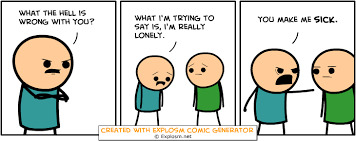
0 notes
Text
Covalent Bonds - Share Electrons
CHP 9
PG. 278 - Reflect - ADHD
When Sydney was in highschool she had a friend who had spoken that he had ADHD. His experiences taught Sydney much about the struggles that he went through on a daily basis. He had said that he was diagnosed at an early age and he had taken medication his whole life. In the high school that Sydney went to those who wished to be apart of the program that helped children like him get through high school would be assigned to a specific special needs counselors and would come in classes and help those students and even the students who were not in the program. The program helped identity what he needed based on his disability. They used an Individualized Education Plan (IEP) to help him navigate high school. An IEP is a written statement of how a program is structured for the child that needs one. (Santrock, 2015) Sydney’s friend was a brilliant student but he had times where it would all be too much and he would shut down. His friends and the specialists would help him get through those times and he would gradually get back to where he was. Sydney thinks that because her high school was small, it was able to give these students a lot of much needed attention and it helped that the entire high school was more understanding of situations like that.
_______________________________________________________________________

0 notes
Text
Ionic Bonding
CHP 8
PG. 257 - Reflect - Parenting
Sydney’s parents divorced when she was very young and this affected the way she lived her life growing up. Because of this separation, Sydney had to adhere to two different parenting styles. From her experiences, Sydney believes that her father had more of an authoritarian parenting style. Though she is not entirely sure of labeling him as such because she did not spend so much time with him because her mother had sole custody. With the limited time she has with him, she would experience a strict and rigid parenting style. Her father liked it his way or no way and that everything she did had to be done the correct way the first time. When things did not go the way he envisioned he would get angry and take it out in a passive way, blaming everything that could have gone wrong. Sydney believes this resembles an authoritarian parenting style because it, “ is a restrictive, punitive style in which parents exhort the child to follow their directions and to respect their work and effort.” (Santrock, 2015) This parenting style affected her in how she thought of her abilities and how much she reprimanded herself when things went awry. This matches the potential consequence of an authoritarian parenting style where it is, “...associated with children’s social competence.” (Santrock, 2015)
Her mother had a different parenting style than her father while growing up and she can easily remember because she spent most of her growing years with her. Her mother’s parenting style closely resembles the authoritative parenting style. Her mother was more nurturing in nature but because she was also playing “mother” and “father” to Sydney she also ran a strict household. She encouraged Sydney’s creative side and let her expressed it whether it was through her clothing or her “eclectic” music choices. She also made sure that Sydney got things done around the house and in her school work. Her mother also shielded Sydney from straying too far out where her life could be affected. Since Sydney reprimanded herself it was not too difficult to keep Sydney from making bad decisions too often. Sydney’s mothers parenting style is defined in which, “... parents encourage their children to be independent but still place limits and controls on their actions. Extensive verbal give - and - take is allowed, and the parents are warm and nurturing toward the child.” (Santrock, 2015) This type of parenting helped me gain skills that helped me form better relationships which matches the consequences of an authoritative parenting which is “social competence”. (Santrock, 2015)
_______________________________________________________________________
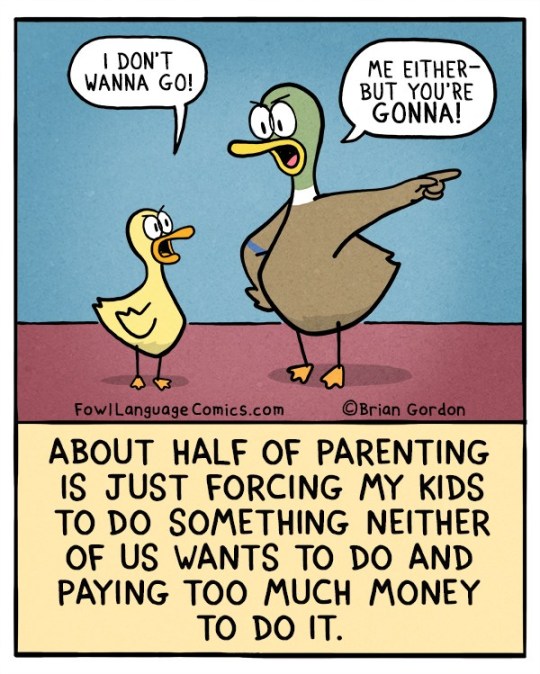
0 notes
Text
Connecting Neurons
CHP 7
PG. 224 - Reflect - Literacy
As Sydney’s siblings grew older, getting closer to entering first grade her mother and her started to teach them how to read and to teach them what each word meant. Each day they would get better with their phonetics because we would sound out each word slowly until they they could say it on their own. They read books that had stories and pictures which helped them keep interested in reading. After they saw they were getting better at reading they wanted to read more challenging books, that had less pictures. As they entered first grade, they had an easier time getting through the reading material and this was because they had practiced ahead of time. “Children’s early home environment influences their early language skills, which in turn predicted their readiness for school.” (Santrock, 2015)
When she would have children, Sydney would like to engage her children in reading before entering first grade but she knows that not every child would automatically love reading. And she would have to incorporate an entertainment component to the reading to keep the children interested and be more likely to retain those reading skills. According to Santrock, “Books can be valuable in enhancing children’s communication skills.” (Santrock, 2015) Knowing this, it would benefit my children to incorporating books early in their life. To help them succeed in reading, there are a few aspects of word learning that Sydney would like to implement in order to help her children succeed. One of the word learning principles is that children learn words better if they hear it often. (Santrock, 2015) To implement this, I would incorporate new words, that they learned, in my vocabulary when speaking with them and giving them context so that they understand the meaning. Another word learning principle, is that children learn words for things that interest them. (Santrock, 2015) To help them retain these reading skills and words, they have to be invested in the things that they are reading. To implement this, the children would read non fiction stories with visuals and plentiful color or with a kinethics element to keep them interested.
_______________________________________________________________________
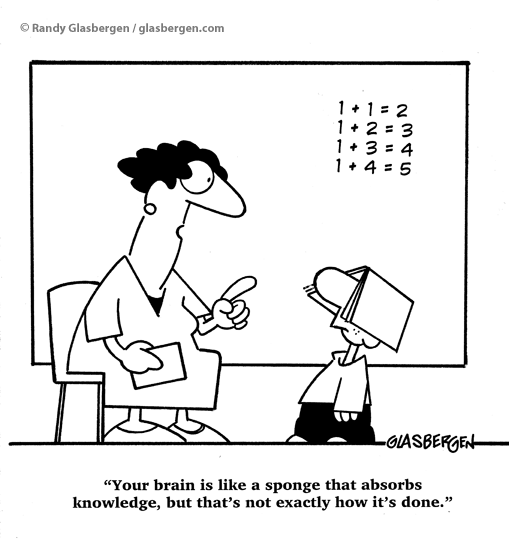
0 notes